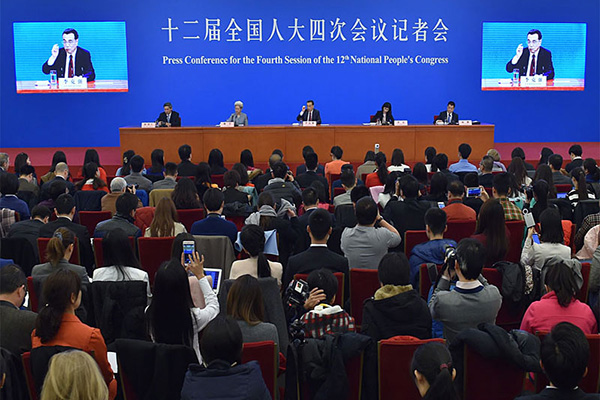
Premier Li Keqiang speaks at a press conference at the Great Hall of the People in Beijing, capital of China, March 16, 2016. [Photo/Xinhua]
Premier Li Keqiang’s press conference, which was held after the annual political session of China’s top legislature closed, was well-received among media reporters.
It was always hard for reporters at the two sessions to get an invitation to the Premier’s annual press conference. This year, an extra 200 seats were placed at the venue, ensuring that every media outlet covering the two sessions would get at least one invitation to the press conference.
Two large LED display screens placed behind the rostrum inside the Golden Hall meant that even those sitting in the far corners did not have to crane their necks to see the expression on Premier Li’s face, as in years before.
Last year was the first time that the conference hall provided Wi-Fi, but the wireless network was known to go offline from time to time. This year, the network’s bandwidth reached 20 gigabytes, which can accommodate simultaneous access for 1,600 terminals. Reporters could instantly file their pictures and stories.
This year’s press conference also witnessed an online poll to raise questions to the Premier. From the poll, which drew more than 24 million Internet users, the top 10 questions were chosen, with appeals to build a nationwide medical insurance network coming in at the top.
The last highlight occurred at the end of the press conference. After the anchor announced the wrap-up of the conference, Premier Li said, “I noticed a reporter who raised a board with the Chinese characters for farmer, and I used to be a farmer, so I should give the reporter a chance to raise a question.”
Taking an extra question is a long-standing tradition at the Premier’s press conferences, and it is still seen as a sign of good faith in communicating with the media and the public, said a veteran reporter.